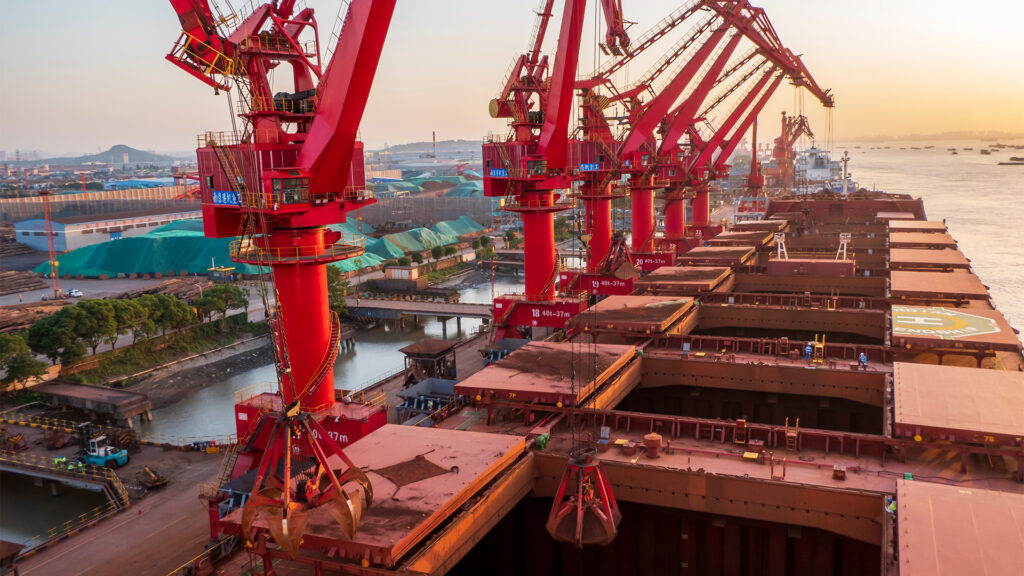For the third time this year, the Chinese government is raising concerns about soaring iron ore prices, attributing them to speculation. On Thursday, the country’s primary economic planning body, the National Development and Reform Commission (NDRC), issued stern warnings.
The NDRC announced its intent to closely monitor iron ore market fluctuations and enhance supervision of spot and futures trading. Global prices in Singapore hit a nine-month high of $136 per tonne this week.
The NDRC cautioned against spreading false information about rising iron ore prices, price manipulation, excessive speculation, and hoarding. While these measures are aimed at Chinese markets like the Dalian commodity market, they may have limited impact on the SGX market operated by the Singapore Stock Exchange, which has become a significant player in iron ore pricing outside of China.
The NDRC previously expressed concern about high iron ore prices in September, with little effect, following a similar reaction earlier in 2023.
The AGX futures price for 62% Fe ore delivered to northern China, known as Pilbara-type ore, peaked at $134.67 on Wednesday, trading slightly higher at around $136 per tonne on Thursday before the NDRC’s latest warning, which led to a $3 per tonne drop, closing at $133.05 on Thursday.
The NDRC conducted meetings with iron ore trading companies and futures firms to understand their activities in the spot and futures markets, responding to the continuous and rapid rise in iron ore prices.
Despite weakened domestic steel demand in China since mid-year, the benchmark December iron ore contract on the Singapore Exchange (SGX) surged by 22% since late October, reaching a nine-month high last Wednesday.
The Dalian Commodity Exchange benchmark also touched its highest level since August 2021, bolstered by the Chinese government’s decision to issue 1 trillion yuan of sovereign debt to stimulate the economy.
One contributing factor to this week’s sharp price increase is news that China has identified 50 property companies eligible for state aid. According to Bloomberg, the list includes companies like Country Garden Holdings, Sino-Ocean Group, and CIFI Holdings, which are either financially troubled or insolvent.
Analysts believe that this list, and its public disclosure, indicates Beijing’s plan to provide support to some of the nation’s most financially distressed property developers as the property crisis deepens. Country Garden was added to the list after missing payments on a dollar bond for the first time last month, and CIFI also missed debt payments, according to Bloomberg.
The draft list also features companies like Gemdale, Vanke, Seazen Holdings, and Longfor Group, among others, with Gemdale notably having no missed debt payments, as reported by Bloomberg.

